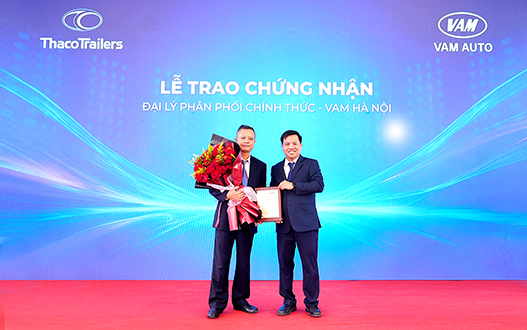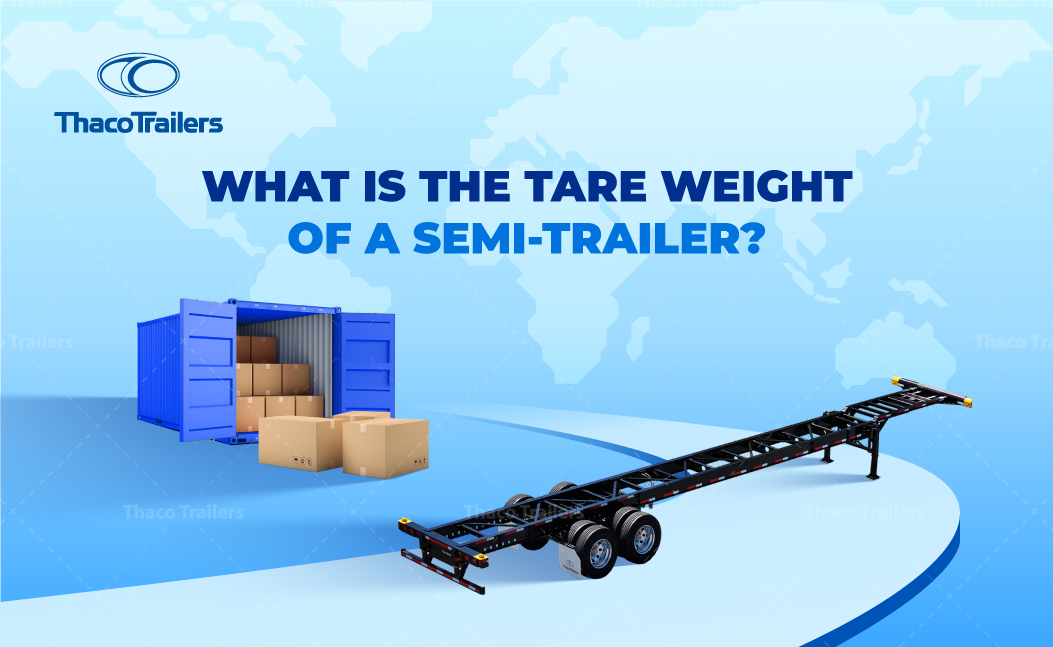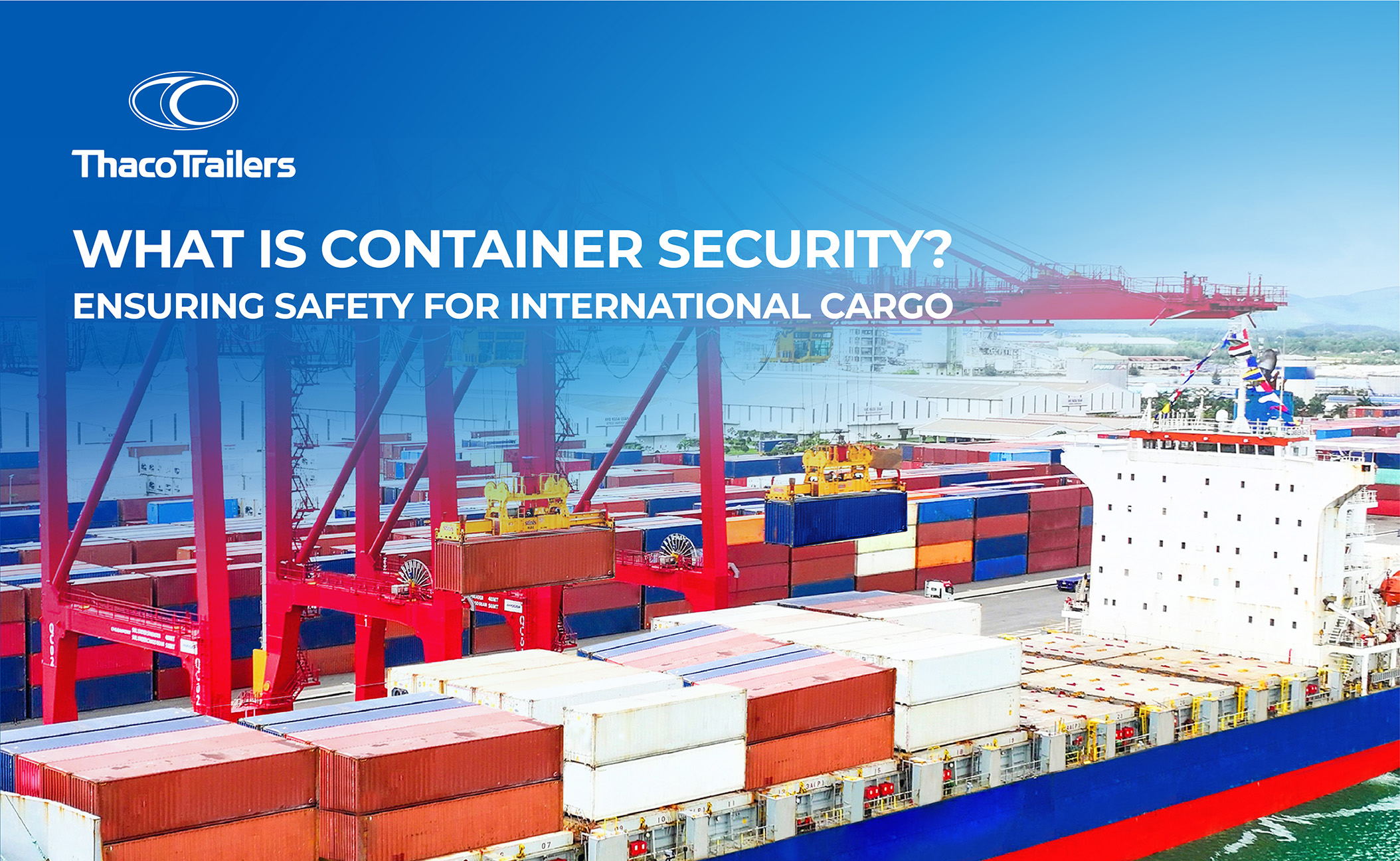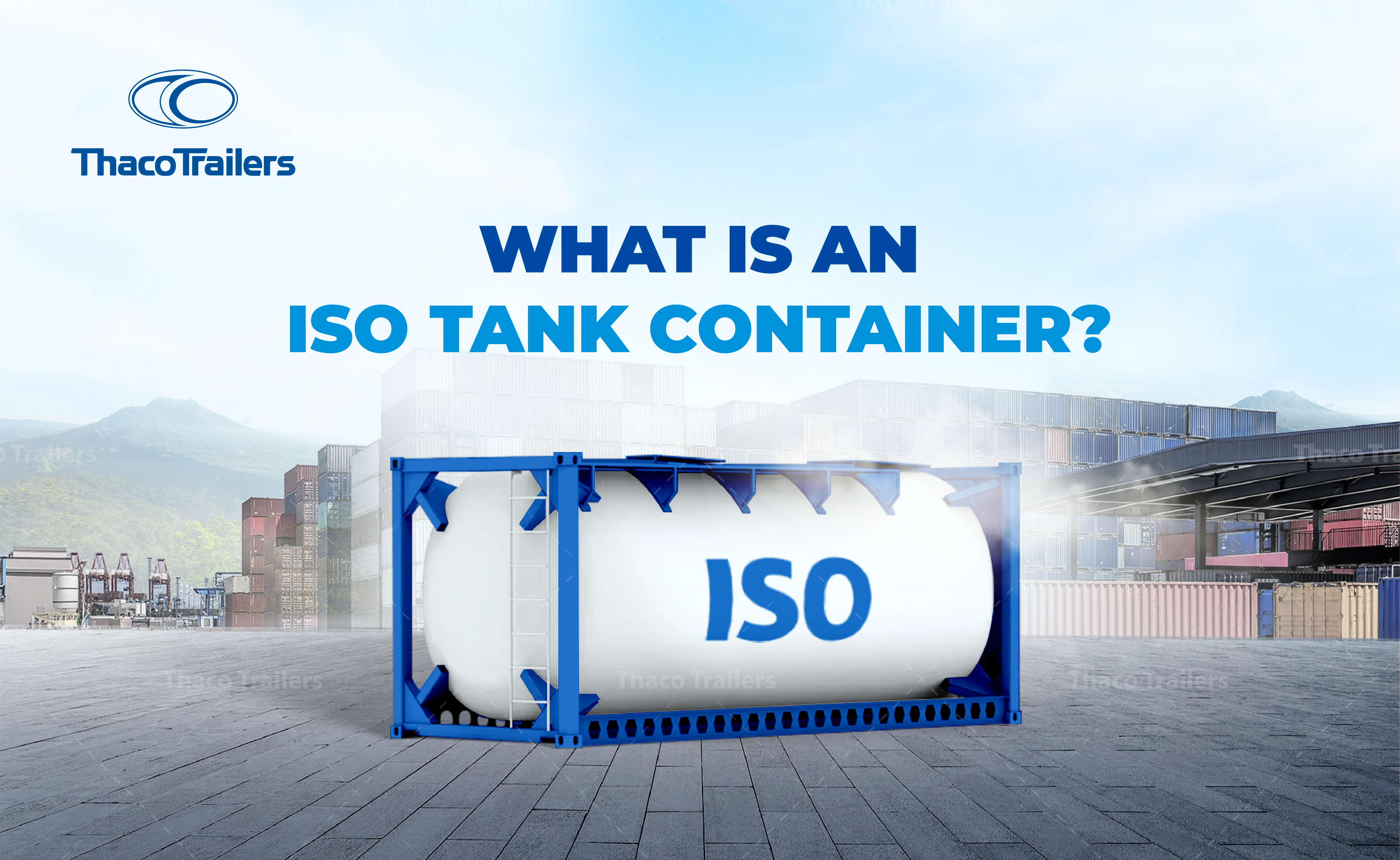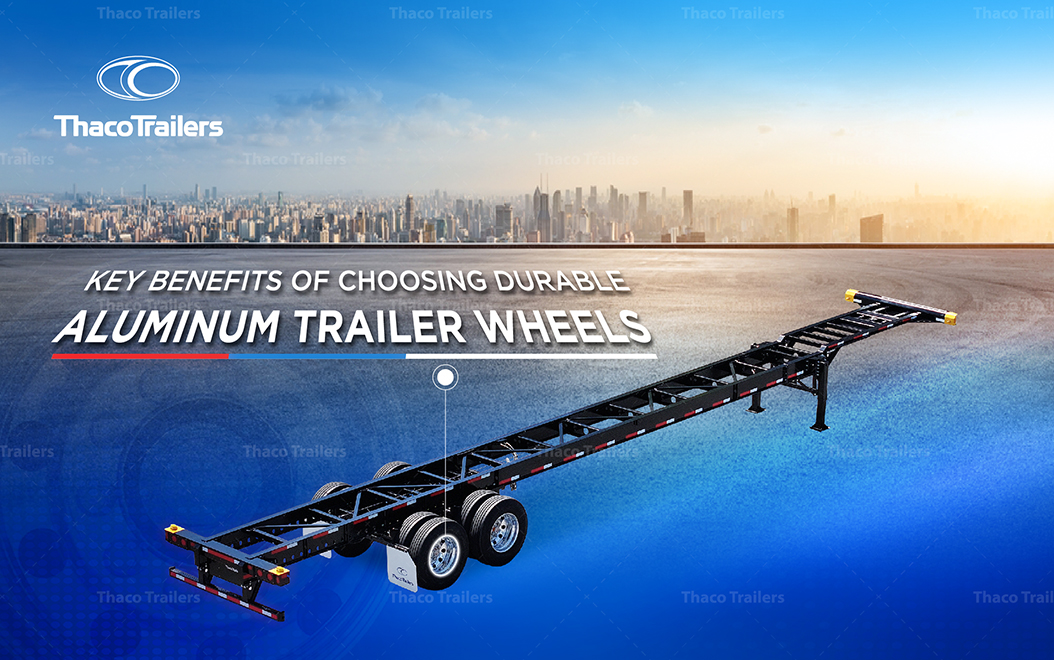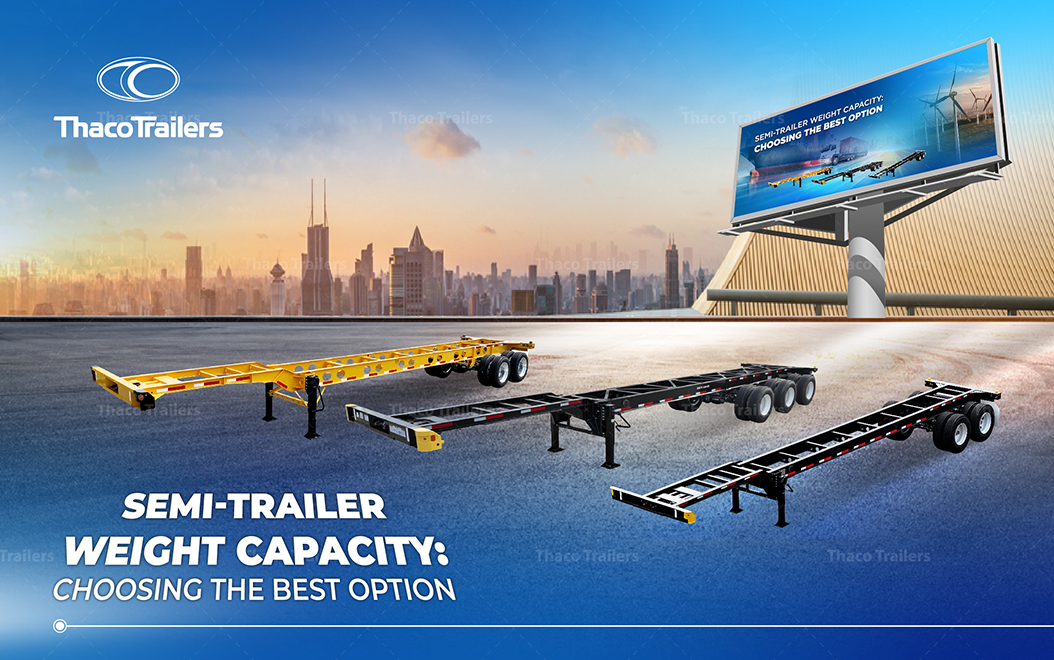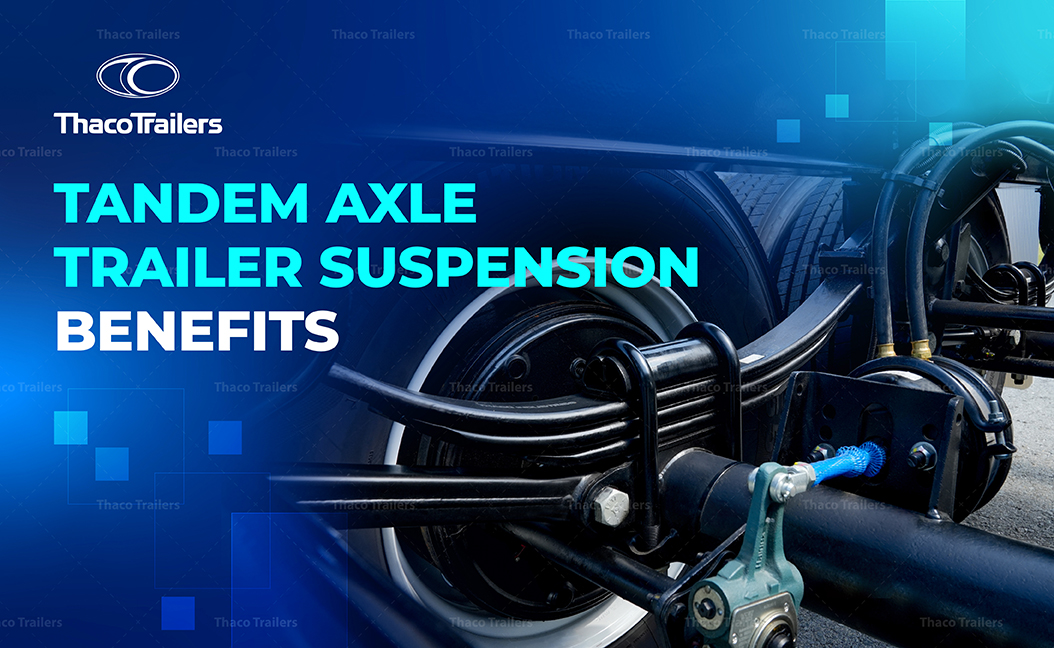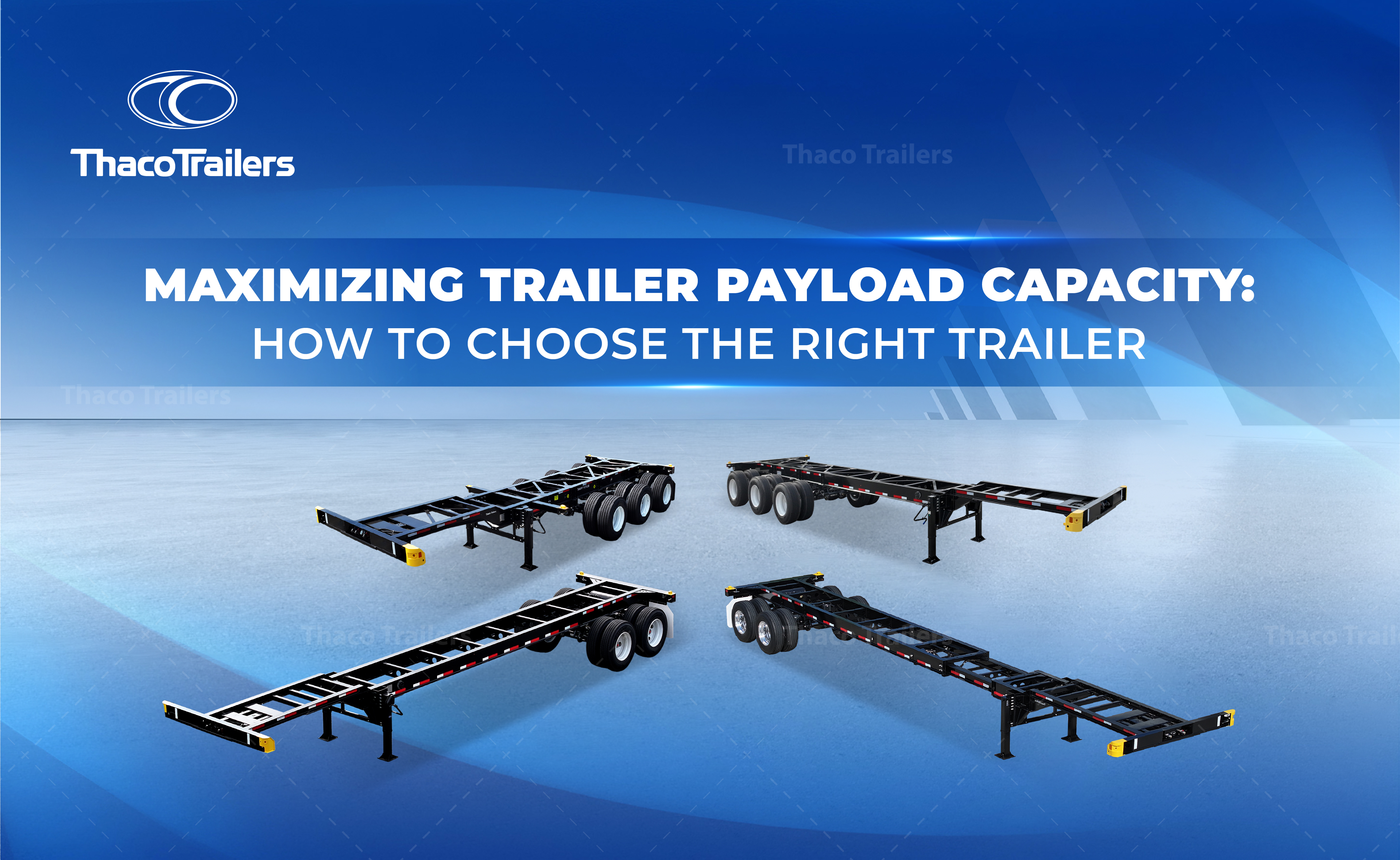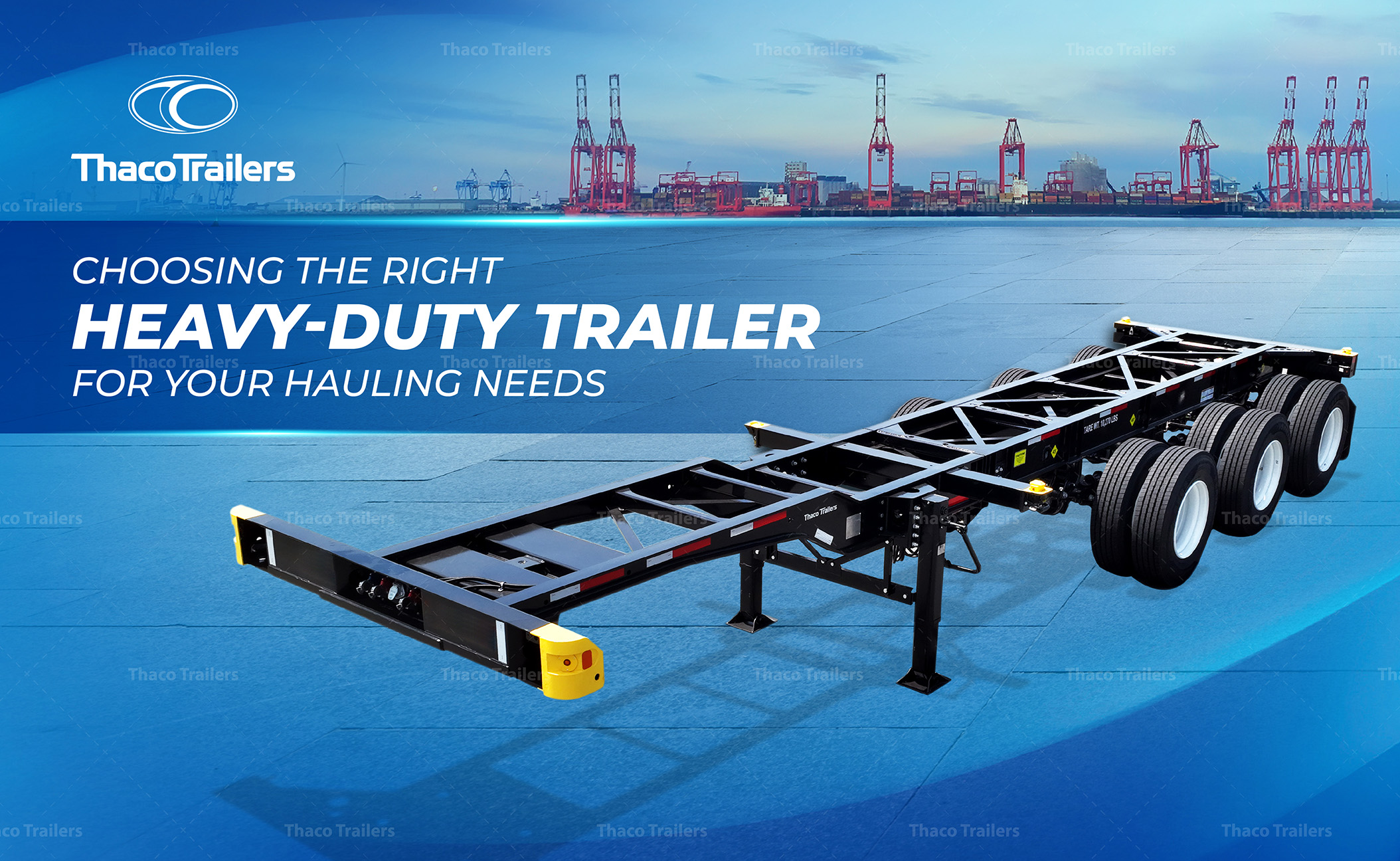HOW TALL IS A SEMI TRAILER? UNDERSTAND THE DIMENSIONS OF SEMI-TRAILER
How tall is a semi trailer? Why is it important to consider the height of a semi-trailer? Knowing this specification aids in planning for road clearance and transit requirements. Additionally, exceeding height limits may result in fines and logistical issues. In this article, Thaco Trailers will help you understand the height of semi-trailers, the factors that influence it, and why this specification is essential for efficient transportation.
1. Overview of semi-trailers
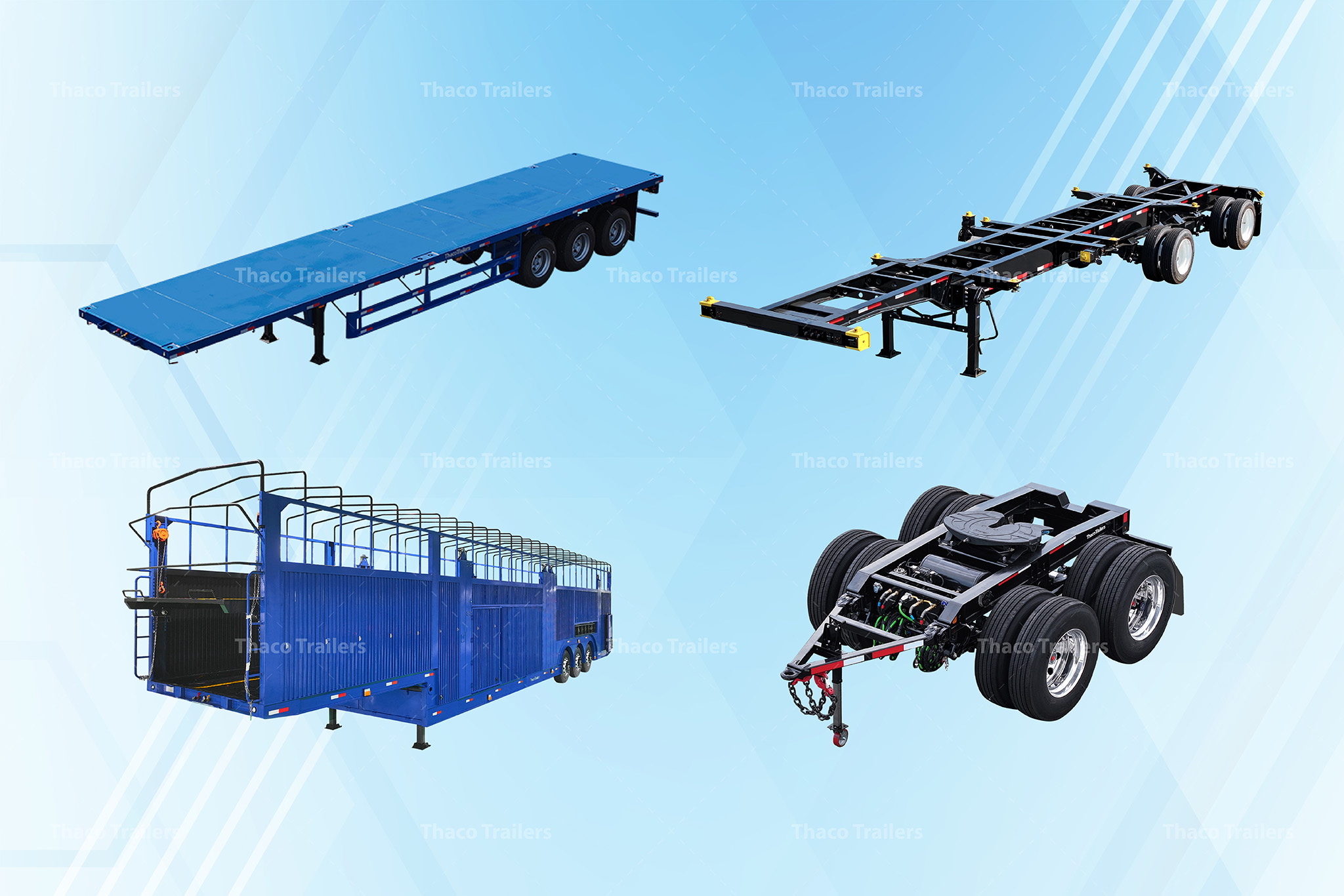
Semi-trailers play a key role in freight transportation. They consist of a cargo-carrying unit that connects to a truck tractor, with the weight resting on the truck’s front. The wheels are located at the back of the trailer. This makes the design flexible and ideal for transporting different types of cargo.
Semi-trailers come in various configurations to meet the needs of different industries. Thaco Trailers offers multiple types tailored for specific cargo types, including Intermodal chassis (standard, extendable, slider), and specialized chassis.
Semi-trailers are designed for efficiency, offering benefits such as higher payload capacity and better fuel economy compared to full trailers. These advantages make them crucial in the transport sector. However, to maintain road safety, semi-trailers must undergo regular equipment inspections and comply with weight limits and other safety standards. By understanding the different types of semi-trailers and their designs, companies can enhance their transportation efficiency, ensuring more flexibility in logistics and supply chain management.
>>Read more: Understanding tandem dolly: key features and benefits
2. Overall dimensions of semi-trailer
2.1. Length
Semi-trailer lengths vary according to the chassis type. Standard chassis are usually between 40 feet 11 inches and 53 feet 7 inches long. Extendable chassis can be retracted to 29 feet 11 inches and extended to 40 feet 11 inches or 45 feet 10 inches. The slider chassis has a retracted length of 31 feet 7 inches and can be extended to 40 feet 11 inches. These modifications enable the efficient carriage of various cargo sizes, including ISO containers. In addition, the specialized semi-trailers from Thaco Trailers come in various lengths depending on the type. For example, flatbed trailers can range from 40 to 53 feet, while drop-deck trailers typically offer adjustable lengths to accommodate different types of containers, ranging from 28 to 53 feet.
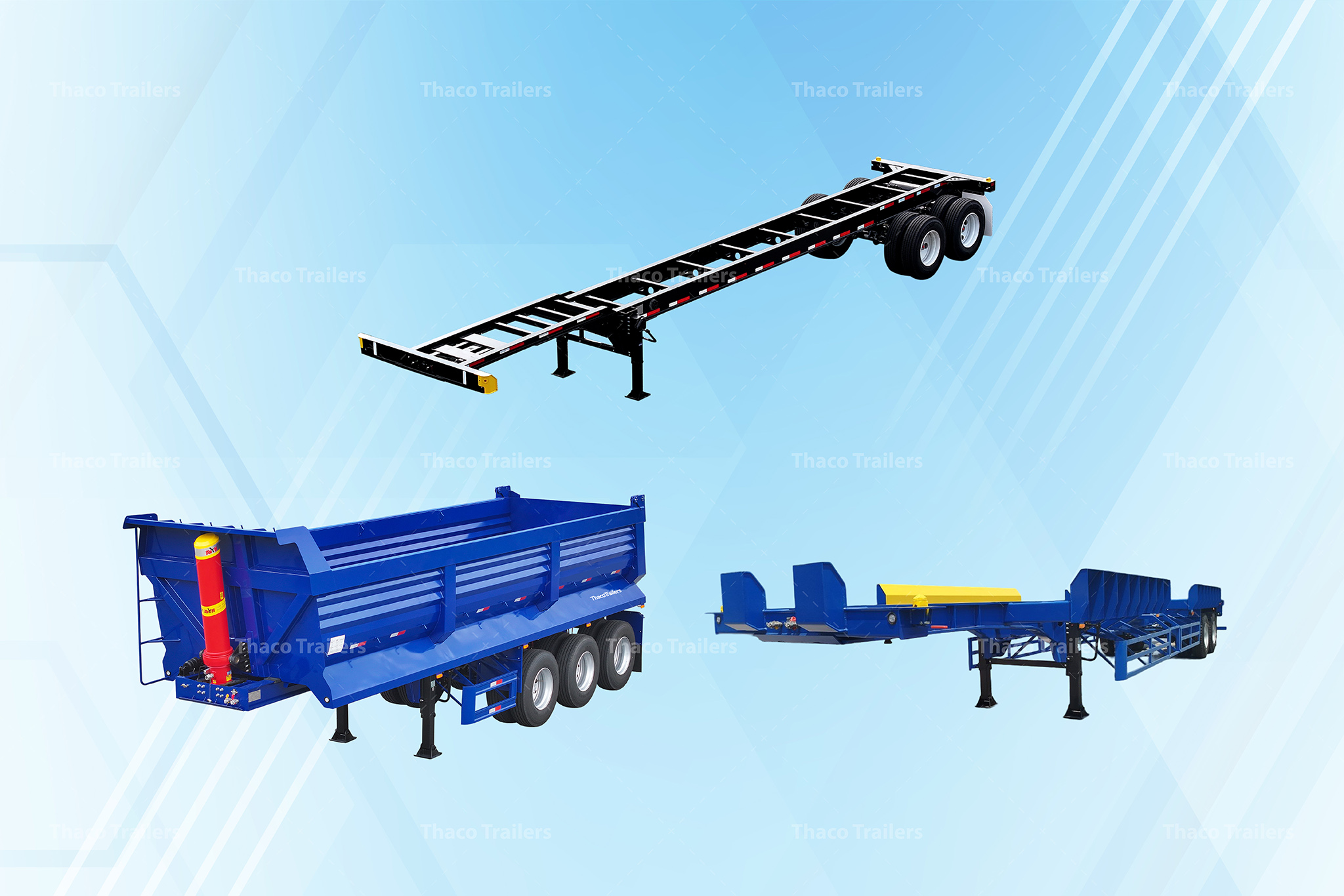
>>Read more: Thaco Trailers provides optimal transportation solutions for the North American market
2.2. Width
According to the Federal Highway Administration (FHWA), the maximum semi-trailer width as 102 inches or 8.5 feet. This width is uniform across trailer models to guarantee road compliance and highway compatibility.
2.3. Height
The height of a semi-trailer varies depending on its type and design. A flatbed trailer typically has a deck height of around 60 inches (5 feet), while a step deck trailer features two levels an upper deck at 60 inches (5 feet) and a lower deck at 42 inches (3.5 feet). Double drop trailers have an even lower middle section, measuring approximately 18 inches (1.5 feet), making them ideal for transporting tall cargo. Meanwhile, skeleton trailers, commonly used for intermodal container transport, usually have an overall height of 57 inches (4.75 feet). These dimensions may vary based on manufacturer specifications and regional regulations, so it’s essential to verify height limits for efficient transportation planning.
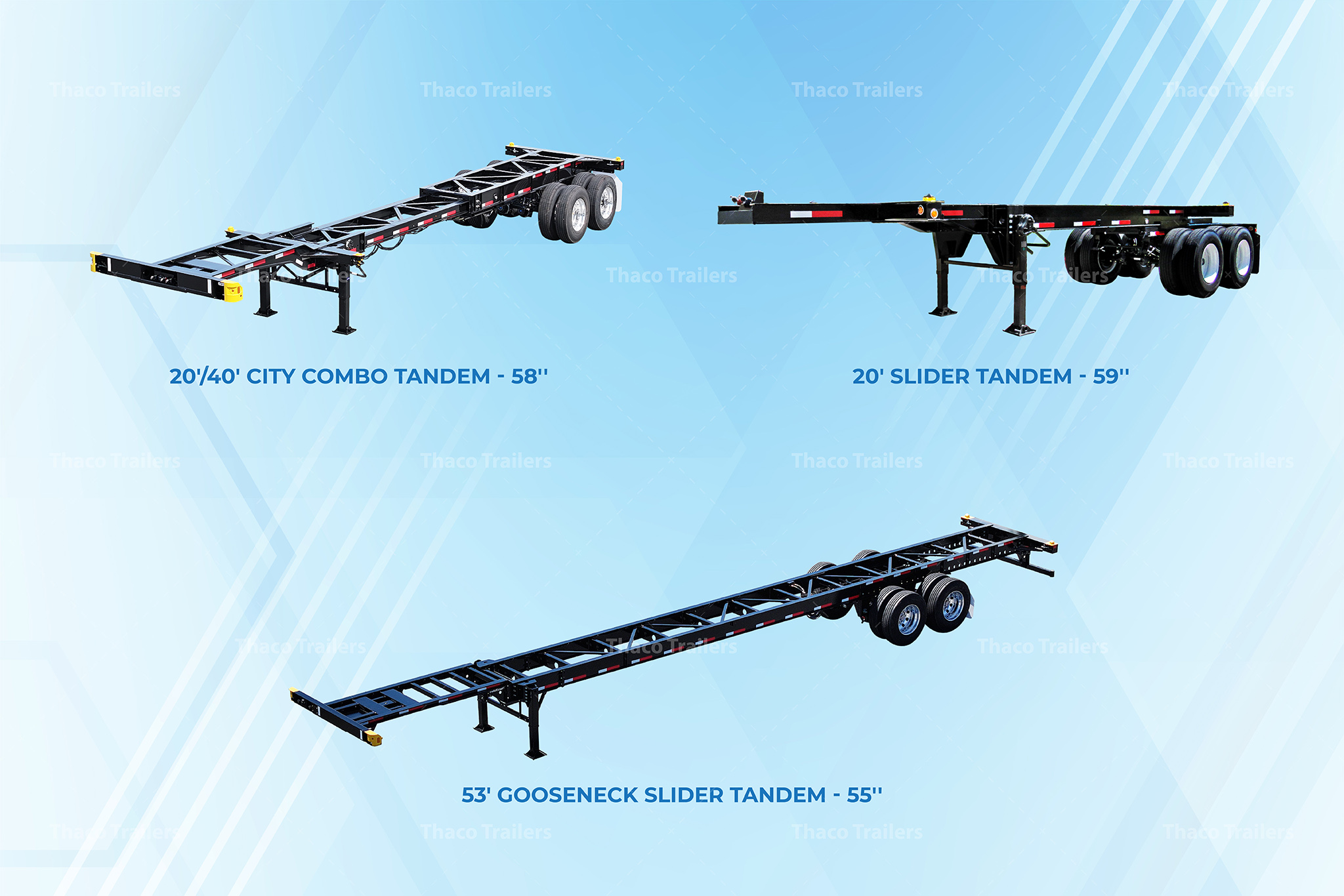
>>Read more: What are the different types of semi-trailers?
2.4. Tare weight and payload capacity
Tare weight and payload capacity vary depending on the type of semi-trailer. Standard chassis have a tare weight of about 6,600 pounds and a payload capacity of up to 67,200 pounds. Extendable chassis have a tare weight of approximately 7,500 pounds for a 40-foot payload, whereas slider chassis have tare weights varying from 9,350 pounds to 10,900 pounds, depending on arrangement. Payload capabilities for slider chassis can exceed 74,100 pounds. Understanding these dimensions and capacities is critical to ensuring the safe and effective transportation of goods.
Besides, the tare weight and payload capacity of specialized semi-trailers vary according to the type. For example, flatbed trailers typically have tare weights ranging from 6,000 to 7,500 pounds with payload capacities reaching up to 70,000 pounds. Drop-deck trailers offer similar configurations, with additional capacity for heavy or oversized loads.
3. How tall is a semi-trailer?
Why does the height of a semi-trailer matter? The height of a semi-trailer varies depending on its type and purpose, making it essential to understand these dimensions for regulatory compliance. Additionally, trailer height impacts overall performance in several key areas:
- Payload capacity: The height of a semi-trailer influences how much cargo can be loaded while remaining stable and secure. Trailers with lower heights, such as step-deck or lowboy trailers, can accept larger loads while remaining under legal height requirements, maximizing payload capacity.
- Clearance: The height of a semi-trailer directly influences its clearance when passing under bridges, overpasses, and other structures. Maintaining the proper height allows the trailer to move safely on varied routes without risk of contact, which could result in accidents or damage to both the trailer and the cargo. A semi-trailer’s height significantly affects its overall performance, including cargo capacity, clearance, fuel efficiency, and regulatory compliance.
- Fuel efficiency: A semi-trailer aerodynamic profile is affected by its height. Lower trailer height can reduce wind resistance, resulting in higher fuel efficiency. This is especially critical for long-distance transportation since fuel prices can have a considerable impact on overall operating expenses.
- Legal compliance: Different regions have their own standards regulating the maximum permitted height for vehicles on public roadways. For instance, in the United States, the standard height limit for most semi-trailers is 13 feet 6 inches (4.11 meters). Ensuring that a semi-trailer follows these required height limits is critical for compliance and avoiding fines or penalties. This is especially true for specialty trailers that are tailored for specific cargo kinds.
In summary, the height of a semi-trailer influences its cargo capacity, clearance, fuel efficiency, and regulatory compliance, making it an essential element in the design and selection of trailers for a variety of transportation purposes.
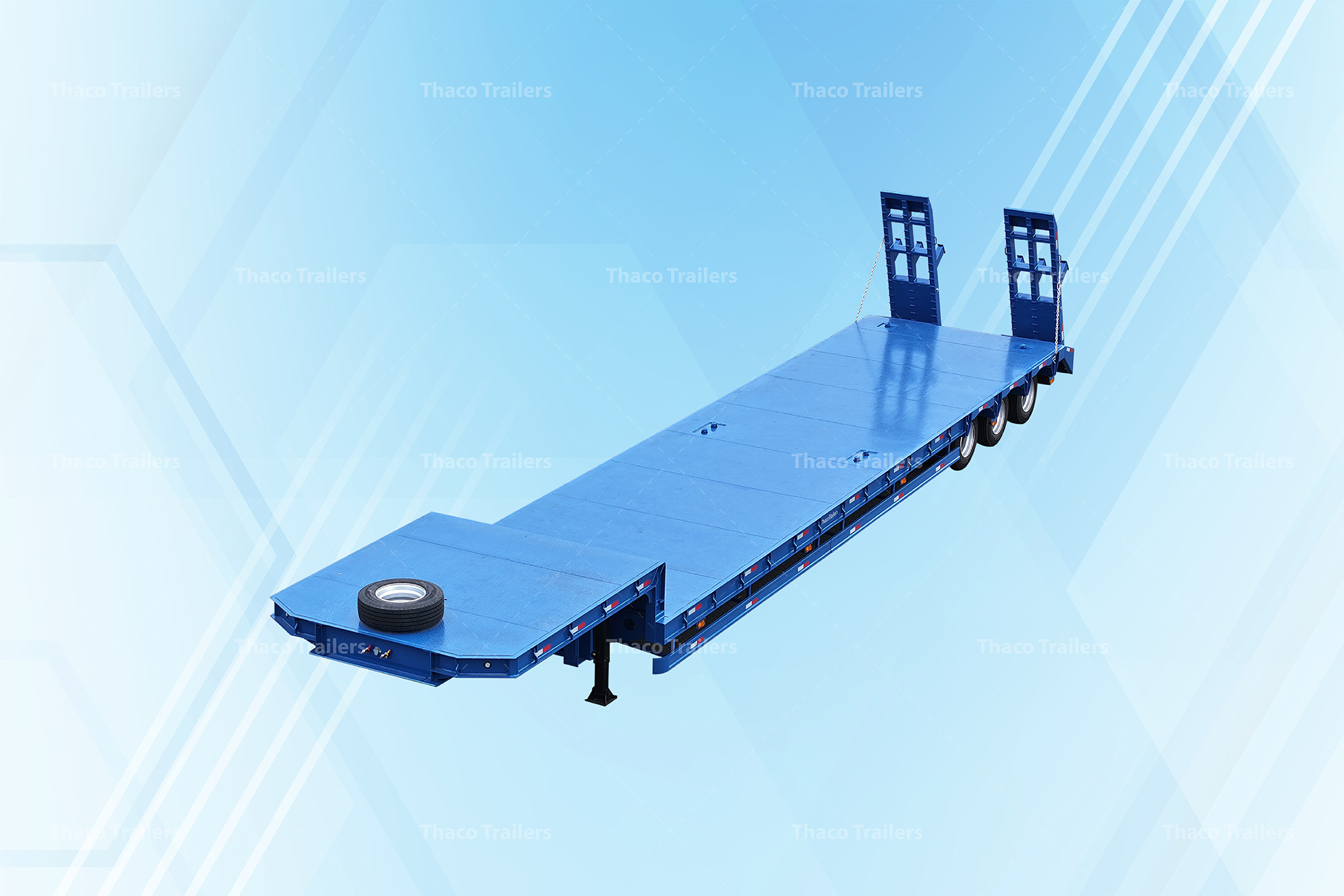
>>Read more: Understanding flatbed semi-trailers: features and benefits
4. Choosing the right semi-trailer height for your needs
Choosing the proper height for a semi-trailer is a crucial choice that can have a considerable effect on the efficiency and safety of transportation operations. The appropriate height guarantees that your cargo is suitably accommodated while complying with legal requirements.
4.1. Matching trailer height to cargo requirements
Choosing the appropriate trailer height is critical for transporting different types of cargo efficiently. Various cargo categories have specific height requirements, making it important to recognize these needs. For example:
- Skeleton chassis: Typically 58 inches in height, standard chassis are suitable for general freight, including 20-foot and 40-foot containers.
- Specialized semi-trailers: Specialized semi-trailers, such as flatbed semi-trailers, generally have a height of around 60 inches. They are designed for transporting long, heavy, or irregularly shaped cargo, which can be challenging to load and unload in enclosed trailers.
When picking a trailer, take into account the dimensions, weight, and type of the load. Ensuring that the trailer height matches the cargo’s needs will help increase payload capacity while also maintaining transit safety.
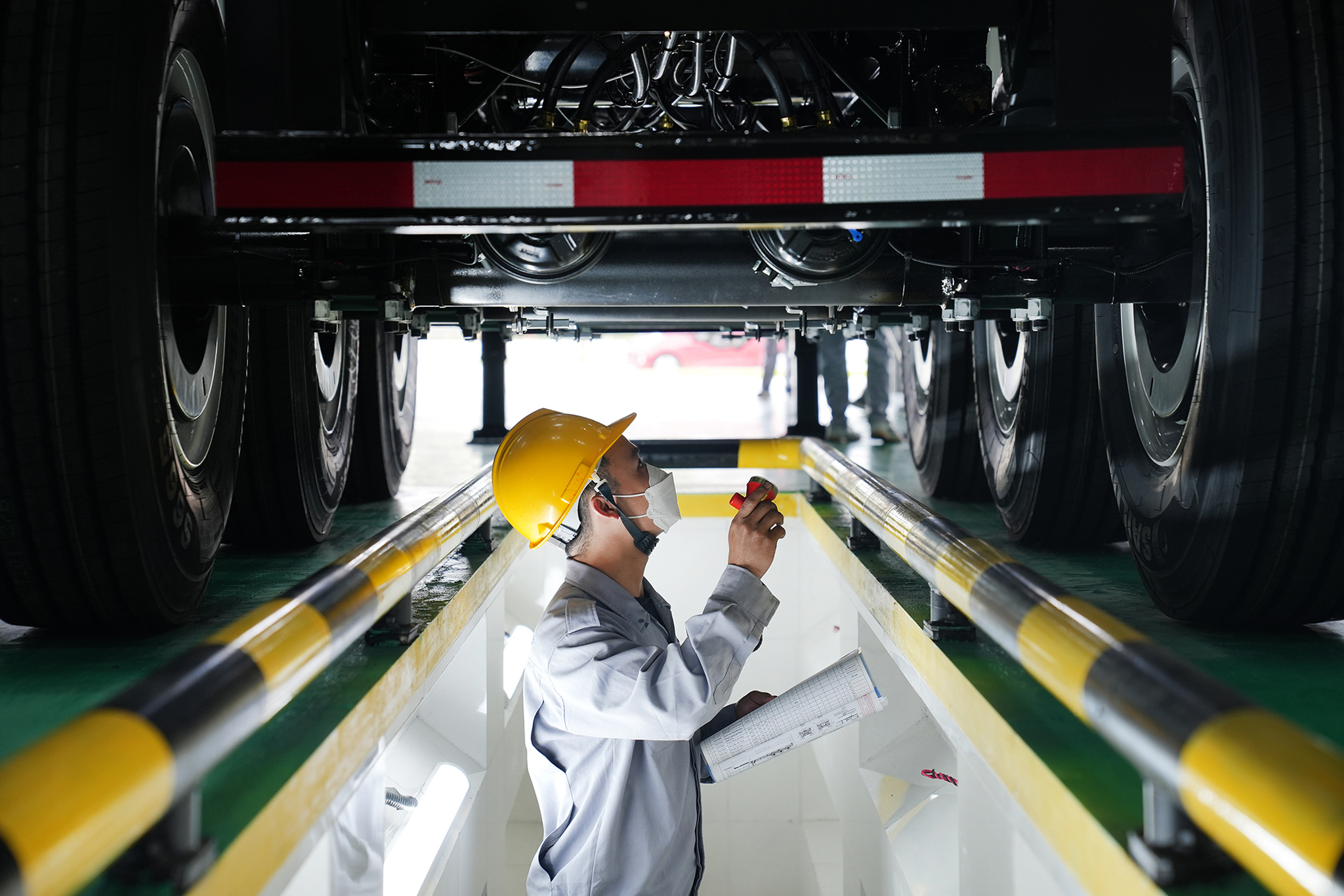
4.2. Regional height restrictions and compliance
Understanding regional height regulations is important to guarantee road safety. Different jurisdictions set precise height limits for cars to enable safe passage under bridges, overpasses, and other structures. In many regions, typical height limits range between 13 feet 6 inches (about 162 inches) and 14 feet (roughly 168 inches).
5. Thaco Trailers – your partner for tailored semi-trailer solutions
Thaco Trailers has built its reputation as Vietnam’s top semi-trailer manufacturer by understanding what businesses in logistics and transportation really need. We have the capability to manufacture and supply a wide range of high-quality semi-trailers, from standard, slider, and extendable chassis to specialized SMRM such as flatbeds, dry vans, dump trailers, and more. Each trailer is custom-designed to meet customer requirements and market standards, ensuring flexibility in handling unique transport challenges for clients across North America, Southeast Asia, Australia, and other regions.
With a production capacity of 30,000 trailers per year, we leverage state-of-the-art technology and advanced machinery to deliver high-quality products. Our dedicated engineering team, skilled in product research and development, works with modern design and simulation software such as NX and Hyperworks to create tailored solutions. This combination of cutting-edge manufacturing processes and R&D expertise ensures that we meet customer requirements while staying ahead of market trends and technological advancements. Thaco Trailers prioritizes quality by adhering to international standards such as ISO 9001, ISO 14001, and North American standards (DOT, AAR, ANSI, TOFC, FMVSS, SAE, and TTMA).
Not only building trailers, Thaco Trailers but also goes the extra mile with Delivered Duty Paid (DDP) shipping service to simplify the import process for our overseas clients. This focus on easing logistics and cutting through customs red tape makes working with us smoother and more reliable.
In conclusion, Thaco Trailers is more than just a manufacturer. We are committed to developing long-term relationships with businesses that want trustworthy, specialized transportation solutions, whether domestically or overseas.
Contact Information:
- Website: https://thacotrailers.com/en
- Hotline: (+84) 933 805 707
- Email address: thacosv@thaco.com.vn


